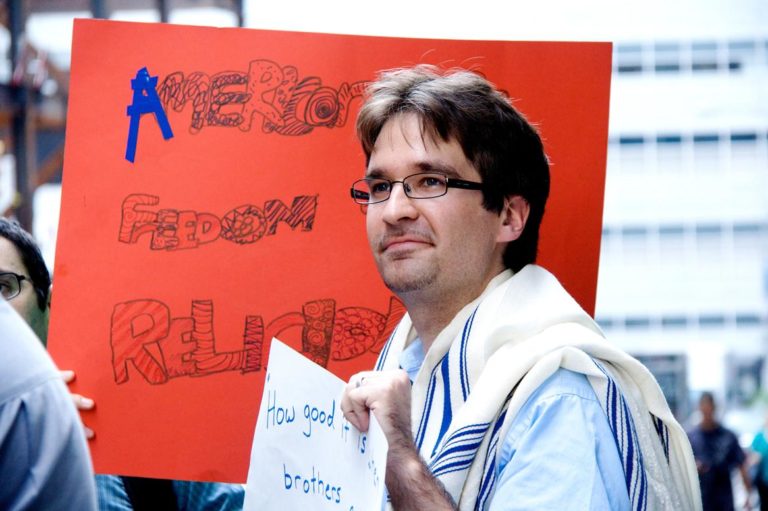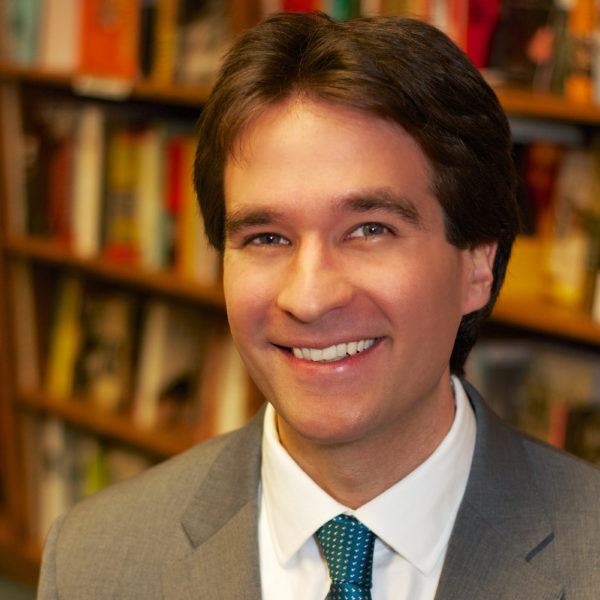
Why My Jewish Faith is Strengthened by Islam
When I, as a rabbi, speak of my “Muslim friends,” most people take it to be a turn of phrase. Some even assume that it will be followed by a laugh or words of denigration about our fellow Abrahamic tradition.
What a shame that events in the world have brought us to such a point socially, even in the relatively copacetic religious landscape of the United States. Even as global upheaval continues to shake our communities and the relations between them, I feel personally strengthened in my Jewish faith by colleagues and true friends who are Muslims.
I do not consider myself a person of “faith” per se. I question, doubt, and grapple with questions small and large. Intellectual, emotional, and spiritual grappling is a sacred pursuit unto itself and involves doubts about both belief and non-belief. Perhaps, ironically, fervent atheists tend to draw me to articulate the beliefs I do have, while fervent believers in a higher power draw me to articulate the doubts that I have.
The more their belief or non-belief relies on the premise of a personified God or one that speaks to humans individually, the more I find myself repelled and optimistic about a belief system that does not rely on these premises.
I remember sitting with a group of conservative imams at an interfaith conference in Qatar when they brought up the idea of an afterlife. When I expressed my skepticism about the likelihood of one, it raised their ire. In turn, I felt an emotional distance from the concept and affirmed in my skepticism.
Yet, for some reason, this is not always so with progressive American Muslim thinkers. I have yet to understand fully why, but perhaps it relates to the circumstances in which they express belief and the humility with which they do so. I often feel drawn to the beauty that belief in a higher power could hold, even though I immediately translate those beliefs into a religious language and mindset from the Jewish tradition I find so compelling.
When Imam Abdullah Antepli of Duke University rises to speak, he evokes a merciful God as the source of inspiration for his words. When speaking of the future Eboo Patel of Interfaith Youth Core says “God willing” in reference to the good it might hold rather than its inherent uncertainty. In moments of remarkable growth or success, it is with impressive humility that scholar and CEO of the Coexist Foundation, Tarek Elgawhary, praises God for bringing him to this point. In moments of anxiety, even as an impressive leader, journalist Wajahat Ali invokes words of belief that somehow, some way, things can improve.
Some might suggest that it is the charisma, success, or personalities of my Muslim friends that draws me to their words. Yet I think this understates the meaning of the progressive and distinctively American form of Islam that they articulate and live out.
I remain someone who doubts and someone who questions. These doubts undergird my belief in a Jewish system of thought and practice that leads to a better life, with or without firm belief in God. But the passionate belief of progressive American Muslim colleagues warms me to the possibility of what a world could be in which there is a God, not merely one that is remote and conceptual, but one that is connective and in relationship with humanity. The beauty of such a world is one that is at once non-rational and even objectionable to the analytical part of my mind and appealing to my emotional intuition and optimism about the world. What a wonderful, connected place this world could be. What an uplifting vision for humanity.
My oscillation between belief and doubt is one that I embrace and sense will be part of the rest of my life. It is a spiritual search that is nourished by my religious practices as a Jew. But I am strengthened in my Jewish faith by forward-looking Muslim leaders and thinkers in the United States. Especially as a Jew, I seek to “hear truth from whatever source it comes” (in the words of the great Maimonides) and find myself happily surprised much comes from my Muslim friends — even, and perhaps especially, those with whom I may never see eye-to-eye with about faith itself.
